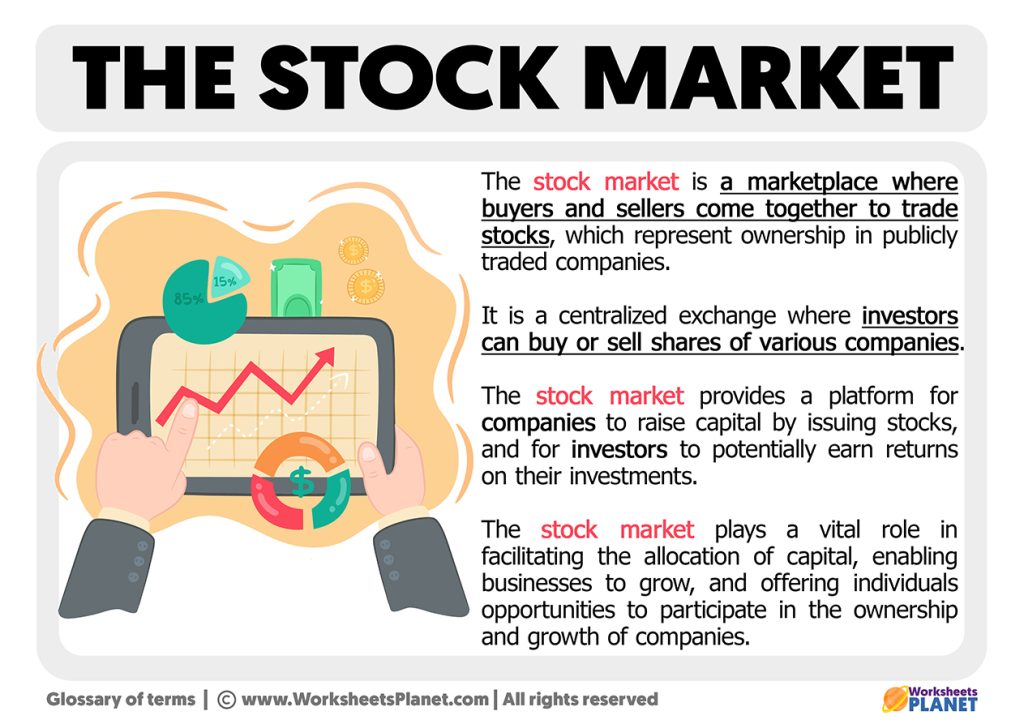In economics, the term “stock” holds multiple meanings, depending on the context in which it is used. Whether referring to financial markets or broader economic systems, understanding the concept of stock is critical for investors and economists alike. This article will explore the definition of stock in economics, its various applications, and why it matters in economic analysis and investment decisions.
What is Stock in Economics?
In economics, stock refers to a quantitative measurement of a resource or asset at a specific point in time. It contrasts with “flow,” which measures the movement of resources over a period. The stock concept is widely used in different fields, from financial markets to macroeconomic analysis.
- Stock in Financial Markets
In financial markets, stock represents ownership shares in a company. Companies issue stocks as a way to raise capital, and investors buy them to gain ownership and potential returns through dividends and price appreciation. Stocks are traded on exchanges like the NYSE, NASDAQ, or regional markets, making them an integral part of investment portfolios. - Stock in Macroeconomics
In macroeconomic terms, stock can refer to tangible or intangible resources within an economy, such as capital stock (machinery, buildings, tools) or natural resources (oil reserves, forests). These stocks determine the productive capacity of an economy and influence growth potential. - Human Capital Stock
Human capital, the accumulated skills, education, and abilities of a workforce, is another form of stock. It represents a nation’s capacity to innovate and improve productivity, directly impacting economic growth.
Stock vs. Flow in Economics
Understanding the difference between stock and flow is essential:
- Stock: A static measurement at a specific point in time. Example: The amount of money in a savings account on January 1st.
- Flow: A dynamic measurement over a time period. Example: Monthly deposits into the same savings account.
In the stock-flow relationship, flows contribute to the change in stock. For example, investments in machinery (a flow) increase the capital stock of a company or economy.

Why Stock is Important in Economics
- Resource Allocation
Analyzing stock helps economists and policymakers understand how resources are distributed and used. For instance, knowing the capital stock of an economy enables effective infrastructure planning. - Investment Decision-Making
For investors, stocks in the financial sense are fundamental to wealth-building strategies. Investors analyze stock performance, market trends, and economic indicators to make informed decisions. - Economic Health Indicators
Stock measurements like foreign exchange reserves or public debt levels provide insight into the economic health of a country, influencing monetary and fiscal policies.
Investing in Stock: Key Considerations
For investors, understanding stock in economics isn’t just theoretical; it guides practical decisions. Key factors include:
- Market Analysis: Evaluate the performance of specific stocks in the market using metrics like P/E ratios and dividend yields.
- Economic Indicators: Monitor broader stock measurements, such as housing stock or commodity reserves, to anticipate market trends.
- Diversification: Spread investments across different types of stocks (e.g., growth, dividend, or value stocks) to manage risk effectively.
Conclusion
The definition of stock in economics encompasses financial securities, tangible resources, and other key components that measure economic health and growth potential. For investors, understanding this concept is crucial for making informed decisions and navigating market complexities. At JD Trader, we provide tools and insights to help you analyze and invest in stocks effectively, ensuring your portfolio aligns with both current market conditions and long-term economic trends.
Start building your knowledge and portfolio with JD Trader today—because smart investing starts with a deep understanding of economic fundamentals.
